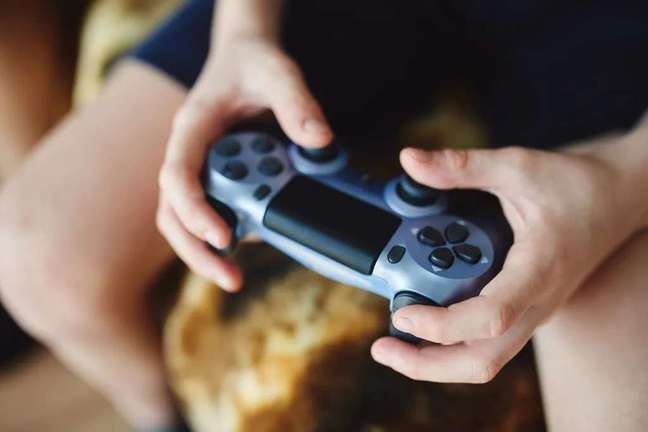Loss of interest and quality in activities previously practiced with pleasure are some of the signs reported by experts
A survey conducted by the Institute of Psychology (IP) of the University of Sao Paulo (USP) found that one in four teenagers have an excessive relationship with video and electronic games. The study surveyed more than 7.5 students, most between the ages of 12 and 14, and found that 85% of the sample are experienced in games. However, 28% of the public, according to the survey, meets the criteria for Internet Gambling Disorder (IJD), recently classified as a disease by the World Health Organization (WHO).

According to psychologist Luiza Chagas Brandão, PhD in Clinical Psychology from IP and author of the study, she explains that problem use is greater in Brazil than in other countries (the average ranges from 1.3% to 19.9%), although the habit of playing video games, in general, is similar to the world average. She further states that one of the hypotheses in this regard is the difficulty for Brazilians to get involved in other activities due to the lack of access to leisure services and public sports and the high rates of violence affecting face-to-face meetings. face.
According to experts, both the American Psychiatric Association’s psychiatric manual and WHO classify Internet gambling disorder as a psychiatric disorder, but do not set absolute benchmarks for identifying the problem. In other words, the identification of excessive use does not pass only through objective, but also subjective criteria.
“There is no limit to the number of hours in which we can think that there is no risk, because there are etiological factors (causes of diseases) that can have an influence”, says clinical psychologist Igor Lins Lemos, specialist in addiction. technology at the University of Pernambuco (UPE).
“It must be observed if the boy’s family has behavioral dysfunctions, family relationship problems, quarrels, aggression, overprotection, neglect, domestic violence. If there is any genetic basis for a psychiatric disorder, all this must be on the agenda before thinking about it. for example, that each age group has a limited use The higher the vulnerability, the lower the use should be.
How to notice the signs of excessive use of video games:
loss of interest
One of the most obvious signs is the loss of interest and excitement for other activities or moments of exchange, which previously seemed pleasant, to spend more time on the mobile. This includes sports, recreation, family time.
loss of quality
In addition to interest, it is important to observe if there is also a loss of quality in something done in routine activities, such as school work or hobbies (sports and artistic activities).
Irritability
Showing frustration, irritability and sadness on the part of the child or adolescent when asked to stop playing and move away from electronic devices is also a sign that video games may be played excessively.
tired upon waking
It is common for teenagers to play at dawn. Thus, experts indicate that the manifestation of tiredness upon awakening, indicating that the young person has slept little and that he has replaced the hours of sleep with the act of playing, can also indicate an unhealthy relationship with electronic games.
What to do to prevent the habit from becoming excessive
0 to 3 years: Away from the screens
For specialists it is important that children from zero to two or three years do not make any use of screens or technologies, due to the disturbances that this can cause in the development of the little one.
controlled use
Igor Lins understands that, from the age of 4, an hour of playing video games is not contraindicated, but as long as it is supervised. The psychologist believes that more freedom should be allowed from the age of six, but still limiting the time of electronic games to one hour.
“From age 4 to 6, one hour of supervised use is fine. From there to 10, that’s an hour, with more freedom. From 11 to 14, two hours of entertainment per day are acceptable. At the end of adolescence, young adults can have up to three hours of use for games. There is no limit to the hours we can think there is no risk because there are etiological factors that need to be considered, “he said.
Parental control
Another practical measure is to use parental control apps for websites and time-blocking apps such as family link, which help prevent excessive gaming. Parents can also agree with their children to have permission to access the cell phone when needed.
establish combined
Experts say that despite inspections, it is important to avoid violent, totalitarian and heated arguments approaches. We must remember that one of the reasons that push these young people to mobile games, as indicated by the research, is to alleviate the problems of real life. The more family life is adverse, there is the tendency of these young people to go to the game “, warns Luiza.
harmonious family life
The search for a harmonious family life, and which offers adolescents other opportunities for activities and interests, helps to maintain the habit of healthy and not excessive gambling. “The friends they play with (teenagers) also tend to play a lot, so they have no parameters, so if there is a perception of a more serious condition, help from a mental health professional becomes necessary.” psychologist.
Source: Terra
Benjamin Smith is a fashion journalist and author at Gossipify, known for his coverage of the latest fashion trends and industry insights. He writes about clothing, shoes, accessories, and runway shows, providing in-depth analysis and unique perspectives. He’s respected for his ability to spot emerging designers and trends, and for providing practical fashion advice to readers.







